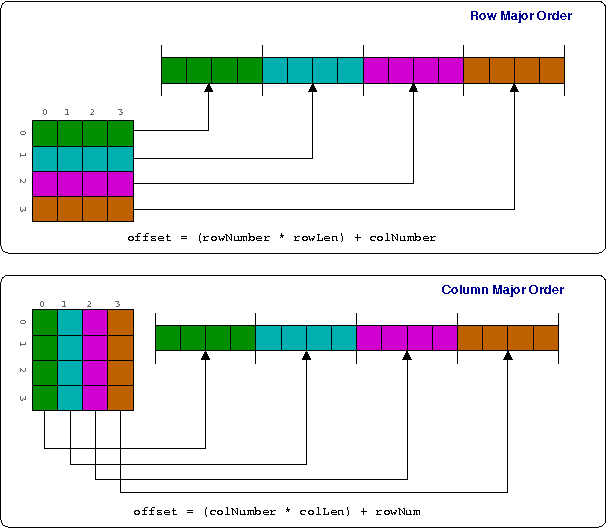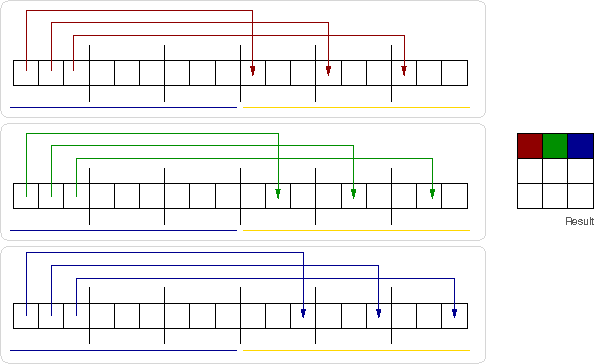We were visiting our friends at
HP yesterday, and whilst discussing some of
the Itanium product line plans, the comment that certain
TLA's
have a real sweet spot for Itanium because it can tell them the number
of set bits in a word very quickly. I was aware of the popcnt
instruction, but wasn't aware people were buying machines to use it.
I instrumented some code
to run a test -- one using the GCC built-in (which falls through to the
popcnt instruction on Itanium), one using a re-implementation of the
generic GCC version, and one described in the excellent "Algorithms for
programmers" book by Jörg Arndt
(download it now if you don't have it!).
A naive implementation would do it with 64 shifts, which would take
forever (for a fairly good explanation of why shifting takes so long,
see the patent on optimised
bit-shifting). The
gcc built-in way is a clever hack:
const int count_table[256] =
{
0,1,1,2,1,2,2,3,1,2,2,3,2,3,3,4,1,2,2,3,2,3,3,4,2,3,3,4,3,4,4,5,
1,2,2,3,2,3,3,4,2,3,3,4,3,4,4,5,2,3,3,4,3,4,4,5,3,4,4,5,4,5,5,6,
1,2,2,3,2,3,3,4,2,3,3,4,3,4,4,5,2,3,3,4,3,4,4,5,3,4,4,5,4,5,5,6,
2,3,3,4,3,4,4,5,3,4,4,5,4,5,5,6,3,4,4,5,4,5,5,6,4,5,5,6,5,6,6,7,
1,2,2,3,2,3,3,4,2,3,3,4,3,4,4,5,2,3,3,4,3,4,4,5,3,4,4,5,4,5,5,6,
2,3,3,4,3,4,4,5,3,4,4,5,4,5,5,6,3,4,4,5,4,5,5,6,4,5,5,6,5,6,6,7,
2,3,3,4,3,4,4,5,3,4,4,5,4,5,5,6,3,4,4,5,4,5,5,6,4,5,5,6,5,6,6,7,
3,4,4,5,4,5,5,6,4,5,5,6,5,6,6,7,4,5,5,6,5,6,6,7,5,6,6,7,6,7,7,8
};
static inline unsigned long countit_table(unsigned long x) {
int i, ret = 0;
for (i = 0; i < 64; i += 8)
ret += count_table[(x >> i) & 0xff];
return ret;
}
The results I saw, in cycles, were:
| Algorithm |
2Ghz AMD Opteron 270 |
1.5Ghz Itanium2 |
|---|
| Built in |
30 |
6 |
| Table lookup |
45 |
27 |
| Shifting |
60 |
48 |
The AMD GCC built-in seems to create some slightly tighter code than my
extract table lookup version -- it doesn't unroll the loop and I assume
the cache does a good job of the prediction. But if your applications
rely on finding set bits heavily, then Itanium is the platform for you!


